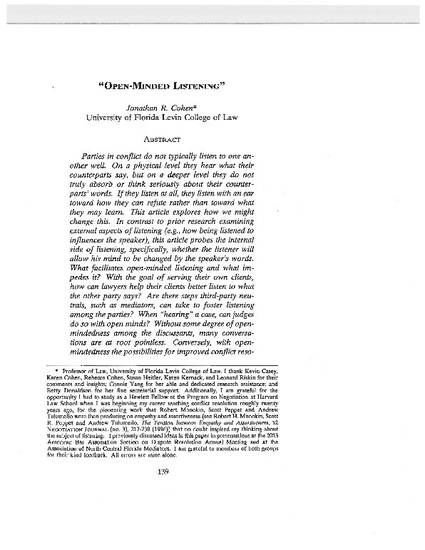
Parties in conflict do not typically listen to one another well. On a physical level they hear what their counterparts say, but on a deeper level they do not truly absorb or think seriously about their counterparts’ words. If they listen at all, they listen with an ear toward how they can refute rather than toward what they may learn. This article explores how we might change this. In contrast to prior research examining external aspects of listening (e.g., how being listened to influences the speaker), this article probes the internal side of listening, specifically, whether the listener will allow his mind to be changed by the speaker’s words. What facilitates open-minded listening and what impedes it? With the goal of serving their own clients, how can lawyers help their clients better listen to what the other party says? Are there steps third-party neutrals, such as mediators, can take to foster listening among the parties? When “hearing” a case, can judges do so with open minds? Without some degree of open-mindedness among the discussants, many conversations are at root pointless. Conversely, with open-mindedness the possibilities for improved conflict resolution specifically and social development generally are tremendous.
